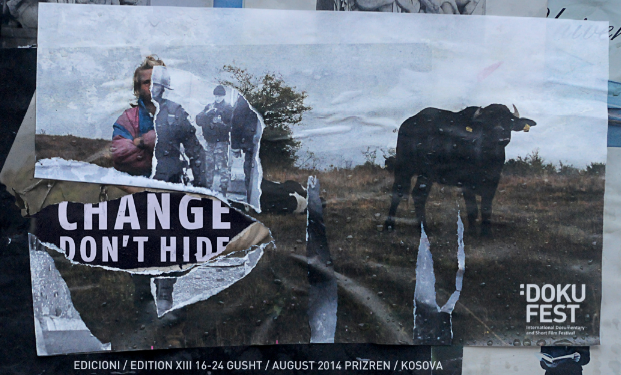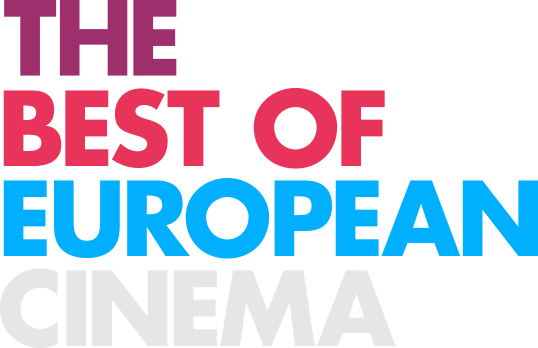Interview with Samir Karahoda, short film programmer at DokuFest
DokuFest is one of the most exciting festivals in Europe. A lot of filmmakers wish to sneak into its programme, and a lot of people talk about it - it has even been defined as „off-the-beaten-path Festival where magic happens”
We sat down with Samir Karahoda*, short film programmer at DokuFest, and talked with him about the Kosovo’s film industry. Moreover, he shared his thoughts about his role of selector, and the difficult task of selecting only 32 competition short films out of the thousands of short films that apply every year. DokuFest is held this year on August 16-24 in Prizren, the second biggest city in Kosovo.

Here you can find the Dokufest line-up.
Cineuropa Shorts: Kosovo is one of the youngest countries in the world. How do the film scene and the festival landscape look like there? What are the biggest challenges?
Samir Karahoda: While the process of creating the State goes on, many other sectors are being built up, and the film industry is one of them. For almost 20 years the cinematography in Kosovo was pretty much non-existent because of the political situation and the last Balkan conflict. Kosovo is still an undiscovered paradise of stories and, unfortunately, many of them remain untold.
In recent years we have seen a constant growth of filmmaking, and this is partially due to the establishment of the Kosovo’s Cinematography Centre. At the same time, we, as DokuFest, have started our mission of educating young talents in filmmaking and storytelling, which has resulted in the production of more than 20 short and documentary films per year. We believe that there are two essential things to do in order to develop the film industry in Kosovo: investing in young talents and digitalizing cinemas across the country. Before 1998, Kosovo counted 30 cinemas across the country, while now there are only two operating cinemas, in Pristina and Prizren. Digitalization and the re-establishment of cinemas in Kosovo cities would automatically support the local film production and the film audience development.
The absences of cinemas and of proper infrastructures to project films are the main challenges for our festival, and therefore an important part of the festival’s budget is spent to improvise cinemas.
What DokuFest offers this year and what distinguishes it from the numerous Balkan film festivals?
Like every year DokuFest offers an unforgettable experience to our visitors. Whether they come to film screenings, exhibitions, workshops, debates, master classes or live music, visitors will always find something to their taste. Our film programme offers a diverse range of genres: fiction, experimental, documentaries, while this year we introduce a new theme: how to use technology to empower us in our everyday struggle for a better society. Take all these contents and place them in cinemas constructed only for the festival, carefully incorporated to the city’s cultural heritage and you get once in a lifetime experience – a city that turns entirely into one huge cinema.
Last but not least, Prizren’s inhabitants are the best allies of the Festival - as someone at IndieWire pointed out, “DokuFest is one of those off-the-beaten-path festivals where magic happens”.
What is your biggest difficulty as a curator of the short film competition programme? Is there any dominating trend this year?
Making a selection among the thousands of short films that have applied was not an easy task at all. After months of reflections and continuous filtration, I have made a selection, which hopefully will be not only to my taste but also awesome for the audience.
Since the topic of this year’s edition is “the change”, I have been trying to incorporate the change component to the programme. When I say “change”, I mean the change as a metaphor and the change as a reality that we face as human beings. Moreover, this year there are some changes in the content and character of the programme: since this edition we will focus on films that convey more realistic interpretations and more authorial expressions.
I can see strong representation of central and eastern European filmmakers in your selection. Do you think that young democracies have stronger voices now?
In our programmes we present many films from central Europe, which have very good quality, and films made by filmmakers from eastern Europe, that have - in my opinion - a different spirit in making films. By mixing East with Centre and West, I believe we have an ideal composition for a qualitative programme, which is not boring at all and show different cinematographic styles.
We are particularly interested in expanding our collaborative networks. That is why we will be focusing on the developments of young storytellers, film critics and filmmakers in general. Since we are all part of the same society, and we share common social and political issues, we might in the future have even a stronger voice in our efforts of making the world a better place to live.
*Samir Karahoda is a short film programmer, photographer and cinematographer. He completed his studies in Photography at Mimar Sinan University in Istanbul where at the moment he is pursuing his MA studies. Since 2003 he’s a part of DokuFest - Documentary and Short Film Festival, the largest cultural event in Kosovo and one of the main film festivals in the region. Since 2007 he’s part of the selection committee of the Dokufest short film. He has also curated several programmes for different film festivals focussing on shorts from the Balkans and Kosovo.
25 July 2014, by Marcin Luczaj






